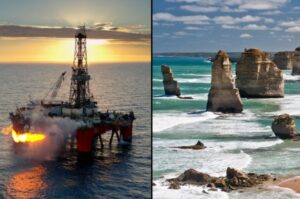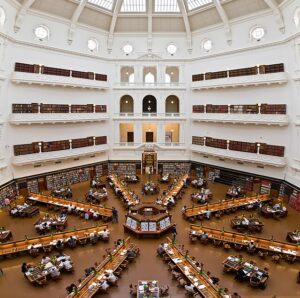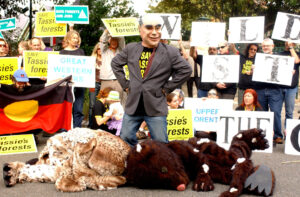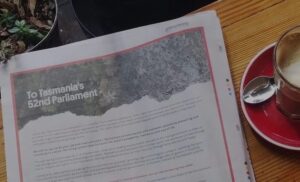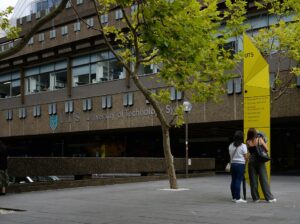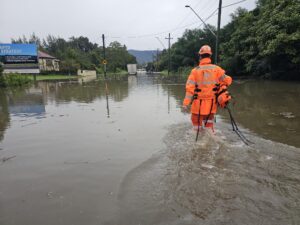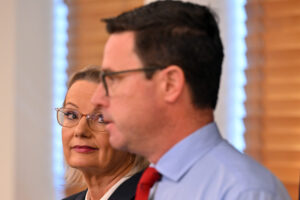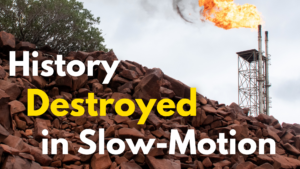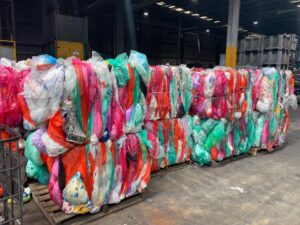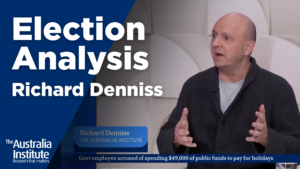Articles
January 2026 Media Highlights
Our first month of 2026 was an eventful one!
December 2025
2025 Year in Review
It’s been a massive year for everyone here at the Australia Institute, and we couldn’t have done it without you!
November 2025
November 2025 Media Highlights
November was a busy month at the Australia Institute!
Joint statement: Australia’s national environment laws
We are Australians that dearly love the land, water, wildlife, and culture of our great country. We are committed to communities having a fair go, to openness in decision-making and to having our voices heard on decisions that affect us. We are committed to the wellbeing of this generation and future generations – and to
October 2025
October 2025 Media Highlights
October was a busy month here at the Australia Institute! Here’s what we were up to…
September 2025 Media Highlights
September was a busy month here at the Australia Institute! Here’s what we were up to…
New Video: Save Tuvalu, Save the World
This original documentary from The Australia Institute takes viewers to the front line of the destruction that climate change is causing.
September 2025
EXPLAINER: Howard government puts Albanese government to shame on freedom of information
The Albanese Government announced today they want to charge people a fee for putting in a freedom of information request.
August 2025
Expensive, publicly-funded Carbon Capture & Storage is barely visible in new emissions data
Buried deep in Australia new emissions data release is this nugget, in the ‘revisions’ section: “Fugitive sector emissions decreased 2.2% over the year to March 2025, mainly driven by reductions in natural gas venting emissions from new carbon capture and storage activities and a decline in production across both surface and underground coal mining. Estimates
Media Highlights August 2025
August was another busy month at the Australia Institute! With Parliament sitting, the economic roundtable and more, there was already a lot going on! And we were still releasing new research, holding events, press conferences, the list goes on. Watch a select highlight of content and media from the Australia Institute in August 2025.
Victoria really doesn’t need any new gas
Recently, we published a video showing a huge new gas drilling rig in Victoria, within sight of the 12 Apostles – a globally recognised tourist hotspot. As Dr Emma Shortis says in the video: “We are putting our coastlines at risk to extract gas we don’t even need. Australia already produces way more gas than
EXPLAINER: What are personal staff, and why do they have Clive Palmer contemplating another political campaign?
Clive Palmer, the billionaire coal miner who funded the Palmer United Party, United Australia Party and Trumpet of Patriots, is considering another political run.
The Safeguard Mechanism’s pro-fossil flaws – explained
Governments work hard to ensure that Australian climate policy seems effective to media and voters, while simultaneously ensuring it does nothing to limit the key thing that is wrecking the climate – fossil fuel expansion.
The Productivity Commission is floating AI copyright exemptions – with worrying implications for Australian authors and publishers
In an interim report released overnight, Harnessing data and digital technology, the Productivity Commission has floated a text and data mining exception for the Australian Copyright Act. This would make it legal to train artificial intelligence large language models, such as ChatGPT, on copyrighted Australian work. AI training would be added to the list of “fair
July Media Highlights 2025
July was a busy month at the Australia Institute, and our research was everywhere!
July 2025
Open Letter to the Tasmanian Government
The Australia Institute and 30 other organisations from around Tasmania have published an open letter with 10 asks for the environment from whomever forms Tasmania’s next government. When cross-benchers and major parties have struck successful power-sharing agreements elsewhere, they covered policy as well as procedure, making now the ideal time for progress.
Australia’s Gas Use On The Slide
The Federal Government has released a new report that includes projections of how much gas Australia is set to use over the coming decades. There is no ambiguity in its message: Australia reached peak gas years ago, and it’s all downhill from here:
While university leaders zip around the world, consultants are creating twin crises on Australian campuses
University leaders are keeping their institutions in the news for all the wrong reasons. Yesterday, it was University of Technology Sydney’s (UTS) turn for a round of bad press.
10 reasons why Australia does not need company tax cuts
1/ Giving business billions of dollars in tax cuts means starving schools, hospitals and other services. Giving business billions of dollars in tax cuts means billions of dollars less for services like schools and hospitals. If Australia cut company tax from 30% to 25% this would give business about $20 billion in its first year,
The house always wins: Why we can’t insure our way out of the climate crisis
It is time for the Australian government to admit we can’t insure our way out of the climate crisis our fossil fuel exports do so much to cause.
June 2025
Gender parity closer after federal election but “sufficiently assertive” Liberal women are still outnumbered two to one
Now that the dust has settled on the 2025 federal election, what does it mean for the representation of women in Australian parliaments? In short, there has been a significant improvement at the national level. When we last wrote on this topic, the Australian Senate was majority female but only 40% of House of Representatives
Polling – Superannuation
YouGov conducted a national survey of 1,535 voters on behalf of The Australia Institute between 6 and 11 June 2025, using an online survey polling methodology. Full details are provided in the methodology statement. The poll is compliant with the Australian Polling Council’s requirements. The margin of error on the effective sample size is 3.2%.
Video Report: The Fight to Save Murujuga
An on-the-ground video investigation into the priceless aboriginal rock art at Murujuga, and the damaging effect of gas industry emissions.
May 2025
Great gas giveaway: $215 billion in royalty-free gas for Woodside’s North West Shelf project
A 50-year extension to the North West Shelf (NWS) project in Western Australia (WA) would see huge amounts of gas given away royalty-free. While the exact volume and value is hard to predict, a basic estimate is that up to $215 billion worth of gas could be given away, royalty-free. The NWS liquefied natural gas
Why the election’s closest seat went unnoticed: Too close to Calwell
Updated 30/05/2025 The outer-Melbourne electorate of Calwell was named “Australia’s most unpredictable seat” by The Age after the election and was – aside from those going to a recount – the last seat to be called. The AEC labelled the counting process for the seat “likely the most complex in Australia’s history”. The count is
The election exposed weaknesses in Australian democracy – but the next parliament can fix them
Australia has some very strong democratic institutions – like an independent electoral commission, Saturday voting, full preferential voting and compulsory voting. These ensure that elections are free from corruption; that electorate boundaries are not based on partisan bias; and that most Australians turn out to vote. They are evidence of Australia’s proud history as an
Soft plastic recycling is back in supermarkets!
For many of us, the end of June will mark the return of soft plastic recycling run by the Soft Plastics Taskforce (SPT), which is made up of the three major supermarkets: Woolworths Group, Coles Group and ALDI. But this may be premature since the joint recycling strategy from the Ministry of the Environment and
What will Labor do with power? And what happened to the Greens? | Richard Denniss on ABC News
Richard Denniss joined ABC’s Afternoon Briefing to reflect on what the election result means for policy reform in Australia. Interview with Tom Lowry.
Big Gas is taking the piss | Television Ad
Australia, Big Gas is taking the piss. We made this TV ad to make sure people know.
General Enquiries
Emily Bird Office Manager
mail@australiainstitute.org.au
Media Enquiries
Glenn Connley Senior Media Advisor
glenn.connley@australiainstitute.org.au










